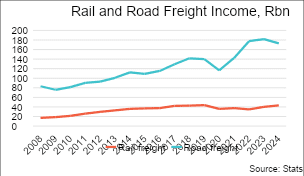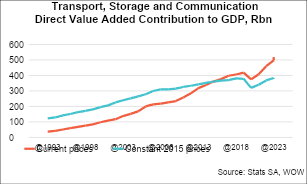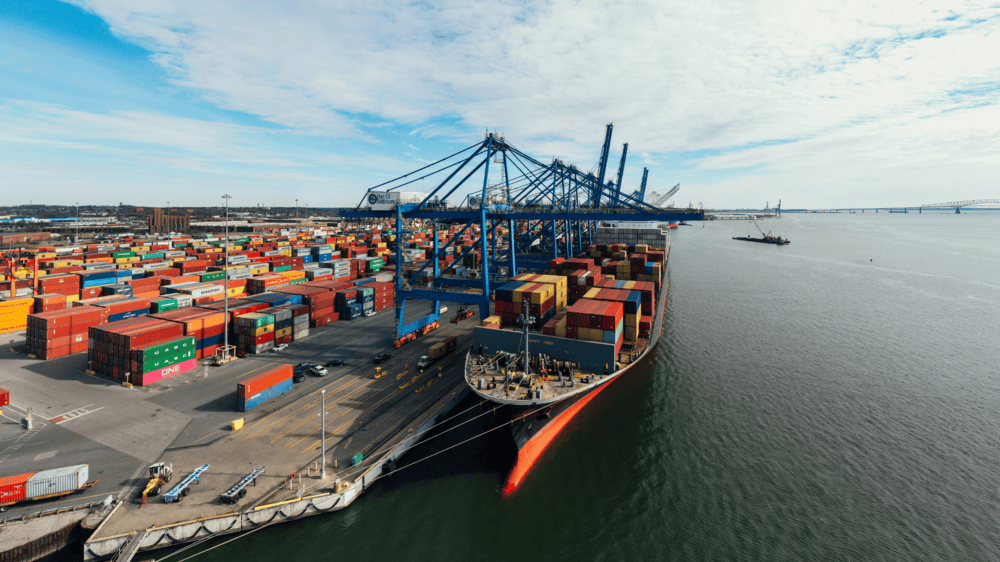Innovation steering the transport and logistics industry in South Africa: Trends, challenges, and opportunities
The transport and logistics industry is a lifeline of any economy, and South Africa is no exception. Since the advent of democracy, after sanctions were lifted, South Africa’s state-owned logistics companies grew to be a formidable force in the SADC region, conducting cross-border trade regionally and globally by moving goods through road, rail, sea, and air.
Global trading shifts and local governance have had a significant impact on the industry, resulting in some turbulence. Challenges were exacerbated by infrastructure demands and technological developments.
Digital trends shaping the industry
In South Africa, the growth of ecommerce, digital freight platforms, automation and management systems that streamline operations outpaced the transport and logistics industry at large.
Technological advancements offer exciting opportunities for the rare mineral mining industry to take advantage of current geopolitical shifts if the infrastructure gaps are addressed and technological improvements are implemented to improve competitiveness.
Suppliers, manufacturers, and distributors are also taking advantage of technology and partnering with logistics companies to share data through digital platforms, making it possible to collaborate in real-time and improve operations and efficiencies. In today’s climate of disruption and high costs, collaboration enhances agility, responsiveness, and service delivery while opening new business opportunities.
Opportunities for the transport and logistics industry in South Africa
The Who Owns Whom report on transport and logistics in South Africa ]found here] indicates that government is exploring private sector participation in rail freight and passenger rail, including the possibility of developing high-speed rail corridors connecting Johannesburg to Durban, Musina, and Mbombela. This reform indicates an intention by government to revitalise transport and logistics infrastructure through public-private partnerships to improve service quality, infrastructure resilience, and boost economic impact.
With Transnet opening to private concessions and joint ventures, private sector companies could bid for terminal management contracts that offer tech-enabled solutions such as automated cargo handling, predictive maintenance, and develop privately run hubs that integrate road, rail, and air freight, especially along underserved corridors.
Sustainability is also gaining momentum, with more companies exploring renewable energy logistics and alternative fuel vehicles to reduce carbon footprints.
The African Continental Free Trade Area (AfCFTA) also offers opportunities for cross-border trade expansion for smart warehouses with automated systems that can improve efficiency and reduce long-term costs.
Challenges Facing the Sector
South Africa is facing several infrastructure challenges, such as electricity availability, that are contributing to slow cargo movement, while port delays in Durban and Cape Town remain a pain point, aggravated by rising fuel prices and increasing operational costs.

Labour strikes disrupt supply chains, cause customs clearance bottlenecks at borders and affect cross-border freight forwarding. Skills shortages in supply chain management also limit the industry’s capacity to adopt advanced technologies quickly.
What is encouraging from the data in the graph is that road freight, which has had a devastating effect on road infrastructure, seems to be decreasing from the upward trend seen from 2018. Rail is simultaneously on the rise, which should improve the cost of logistics.
Opportunities for Growth
The logistics market in South Africa is still full of untapped potential. The AfCFTA offers enormous opportunities for cross-border trade expansion. Investment in bonded warehouses, where goods are stored and only customs cleared on sale, coupled to smart automated systems to improve efficiency and reduce long-term costs.
There are opportunities in cold chain transport of pharmaceuticals, fresh produce and frozen goods to retailers serving rural communities and ecommerce companies that aim to reach underserved communities.

The shift toward renewable energy logistics and electric fleets could also position South Africa as a leader in sustainable freight transport.
The graph above shows that in 2024, transport, storage, and communication contributed almost R518.4bn to GDP at current prices, up 4.3% from R497bn in 2023. The sector’s contribution to GDP grew at a CAGR of around 10% per year between 1993 and 2024, except for 2020, due to the pandemic.
The outlook for transport and logistics in South Africa
The outlook for the logistics industry is promising, with market growth forecasts pointing to steady regional expansion that can benefit from digital innovation and the growth of ecommerce. This success will require deliberate collaborative efforts between the private sector and government to address infrastructure gaps, modernise ports, and improve border processes.
Contact us to access WOW's quality research on African industries and business
Contact UsRelated Articles
BlogCountries South AfricaTransportation and storage
South Africa’s Rail at a Crossroads: Fixing Transnet to Drive Industrial Growth
Contents [hide] In the late 18th century, the steam engine, used in locomotives, was a foundational driver of the Industrial Revolution, stimulating the mass production of goods and facilitating the...
BlogCountries South AfricaTransportation and storage
The Motor Vehicle Industry in South Africa: Challenges, Prospects and Opportunities
Contents [hide] Motor industries across the globe are driven by innovation. South Africa’s motor industry is actively pursuing innovation initiatives to remain competitive. A good example is the partnership between...
BlogCountries South AfricaTransportation and storage
Africa’s Ports and Harbours: Driving Trade and Growth Across the Continent
Contents [hide] Ports and harbours have evolved from the days when they merchants would display their crafts and fishermen would bring their daily catch, socialise over coffee and exchange their...





